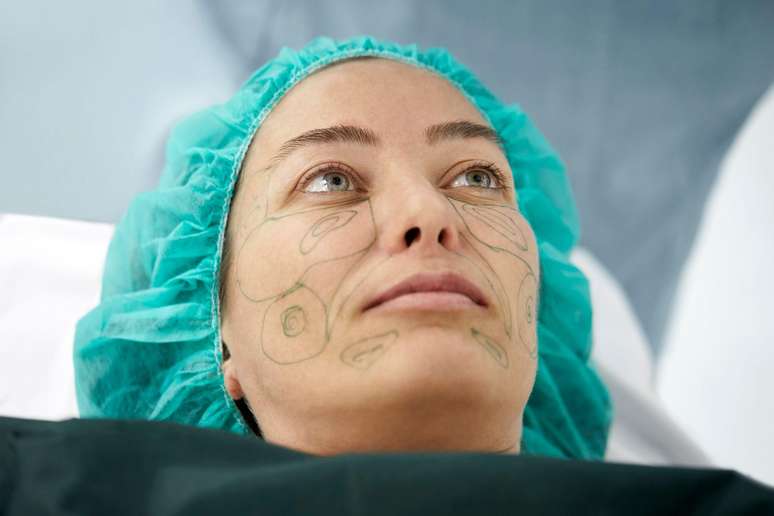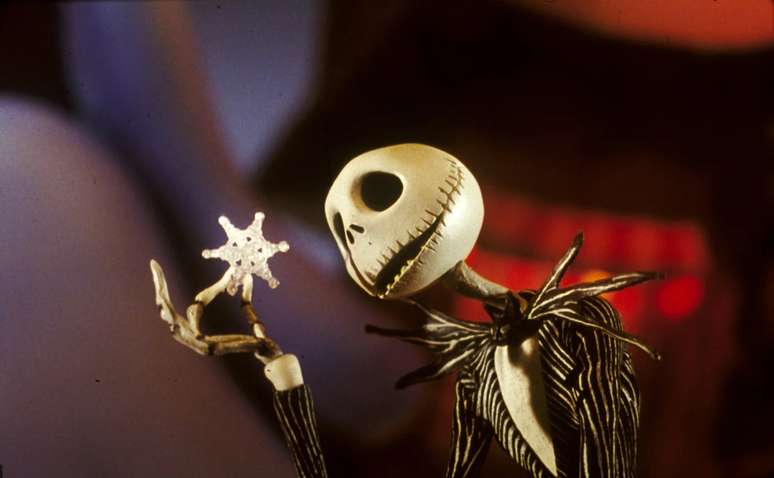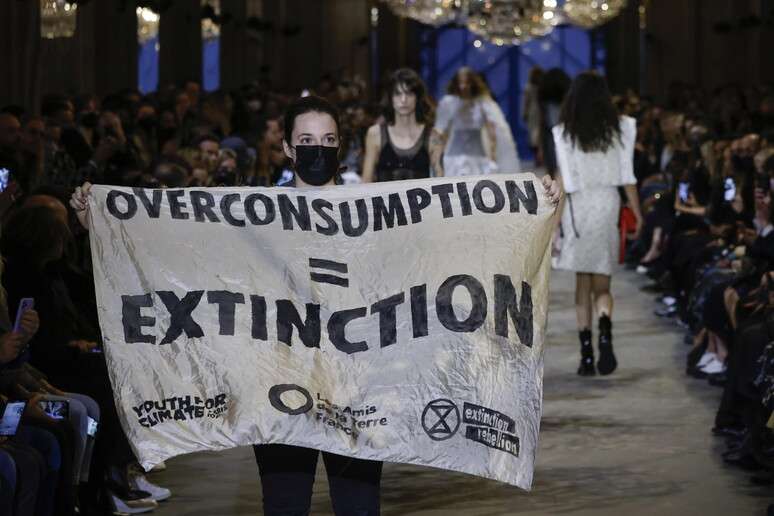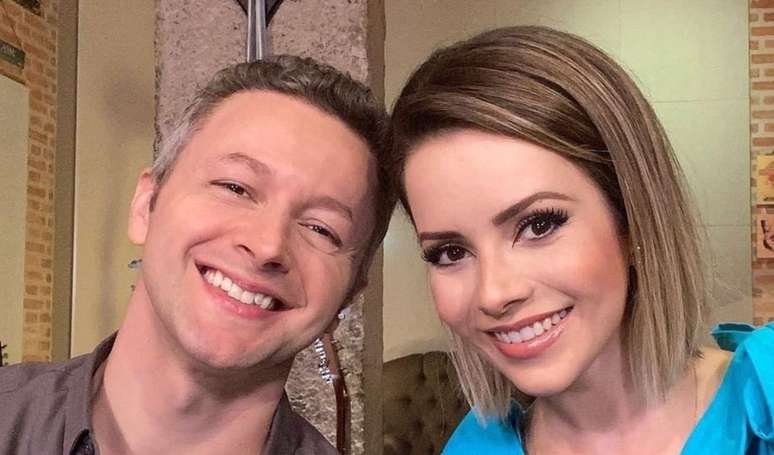The Prefecture follows the recommendation of the Ministry of Health and gives priority to children with comorbidities. Only 699 doses were applied this Thursday
The vaccination campaign against COVID-19 of children aged 6 months to 3 years started slowly. The Pfizer Baby immunizer began to be applied in City of Sao Paulo this Thursday 17, in children with comorbidities – immunosuppressed and permanently disabled – or indigenous, as recommended by the Ministry of Healthhowever, in the four UBS where the ratio of Stage was present – in the neighborhoods of Vila Mariana, Cambuci, Santa Cecília and Vila Madalena – few or no children were vaccinated.
According to the balance sheet of the municipality of São Paulo, of the 34,840 doses received by the municipality, only 699 were applied this Thursday 17, in the 470 basic health units (UBS) of the capital.
For employees of health units and pediatricians, the reason for the low vaccination is the campaign target audience🇧🇷 as, in this age group, many children have not yet been diagnosed with chronic diseases or disabilities.
The decision to prioritize specific groups of children, taken by the Ministry of Health, goes against the recommendation of the Technical Chamber of Pediatrics, which has argued that sufficient doses have been purchased to immunize all children in this age group.
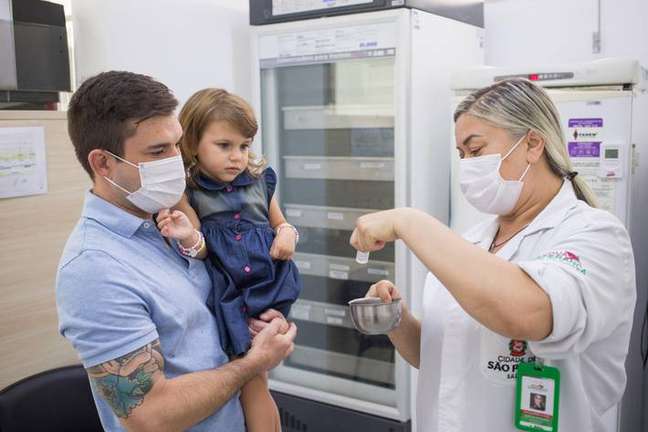
“The logic of prioritizing the immunization of people with comorbidities made sense at the beginning of the pandemic and for adults, as vaccine doses were starting to be produced, they arrived in batches, and it was necessary to contain the number of deaths, but not today and not even for children,” explains Mônica Levi, pediatrician and director of the Brazilian Society of Immunizations (SBIM).
According to the specialist, the Ministry of Health has not considered the specifics of this age group. “They took a table of common comorbidities in adults and adolescents and wanted to adopt it for a children’s campaign. It’s not working.”
Lack of communication
In primary health units, many people were unaware of which diseases and conditions are considered comorbidities. Fathers and mothers came and went with their children to apply the vaccines of the National Immunization Plan (PNI), but they regretted that they could not yet vaccinate their children against covid-19.
Although health units are working with a “quepa da xepa” to vaccinate children between 6 months and 2 years, 11 months and 29 days who do not have a comorbidity, nor are they indigenous, many parents do not know this.
“I’m waiting to start the vaccination for him. As soon as they release him, I will definitely take him to be vaccinated, because I know the importance of the vaccine,” said Rosangela Silva, mother of 11-month-old Bernardo, who until then did not know about the “line for xepa”.
For Mônica Levi, the lack of information from parents is the result of the lack of an effective communication campaign on vaccines. “It is necessary to call parents to vaccinate their children. If they campaigned like they did in the old days, with Zé Gotinha, there would be no shortage of people who want to get vaccinated,” she says.
This month, the Ministry of Health announced that the application for children who do not have comorbidities will be assessed after approval for incorporation by the National Commission for the Incorporation of Technologies in the Unified Health System (Conitec), still without a date to be defined.
missed doses
In addition to the delay in vaccination coverage, with low demand for children’s vaccines at health centres, there is a risk of missed doses. Each vial of Pfizer Baby contains ten shots and, after opening, it has valid for 12 hours🇧🇷 Therefore, if all doses of the vial are not applied by the end of the day, the vaccine is lost.
The expectation is that, in this scenario, the “coda quepa” unfolds rapidly, however, Mônica reiterates that this is not the ideal scenario. “It is absurd that we have missed vaccine doses for logistical reasons. It would make sense for vaccination to be gradual by age group, but not in this pattern of comorbidities,” she says.
Furthermore, even with the measure of the application of the remaining doses, the risk of waste remains high, after all not all health centers are able to form a robust “shepa queue” and parents are not always able to attend the place in the required hours time.
The parents of the children of the “coda xepa” are contacted a few minutes before the closure of the health facilities and must be present quickly so that the child can be given the vaccine. Therefore, registrations are only allowed for people who live near the health unit, upon presentation of proof of residence.
Impact of covid-19 on children
Among the few children vaccinated this Thursday is the son of Maria Aparecida Souza, Pedro, 2 years old. He has encephalopathy and developmental disorders. “I learned that the vaccination campaign for newborns would start today and I was encouraged by the AACD to vaccinate. I decided to go to UBS today because I know how important it is to prevent this disease,” says the mother.
According to Fiocruz, today, two children under five die every day of covid-19 in Brazil. They also tend to suffer more from respiratory diseases in general.
“We have long-term cases of covid in these children and cases of systemic pediatric inflammatory syndrome, which has a high mortality rate, proportional to that of other diseases for which there are vaccines,” says Mônica. “It is not a negligible disease for a child,” she reiterates.
🇧🇷The best content in your email for free. Choose your favorite Terra newsletter. Click here!
Source: Terra
Ben Stock is a lifestyle journalist and author at Gossipify. He writes about topics such as health, wellness, travel, food and home decor. He provides practical advice and inspiration to improve well-being, keeps readers up to date with latest lifestyle news and trends, known for his engaging writing style, in-depth analysis and unique perspectives.

